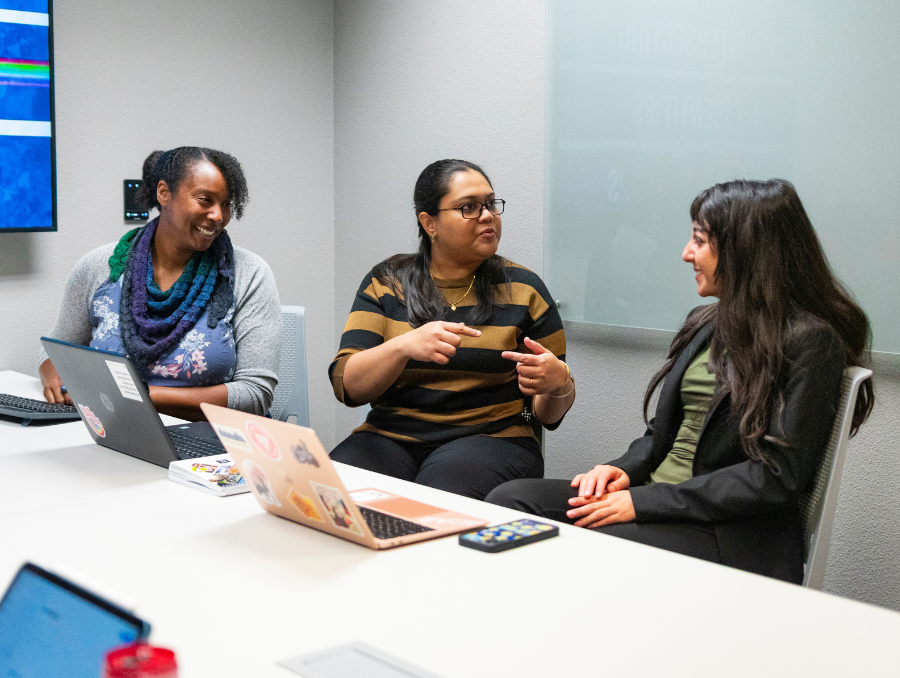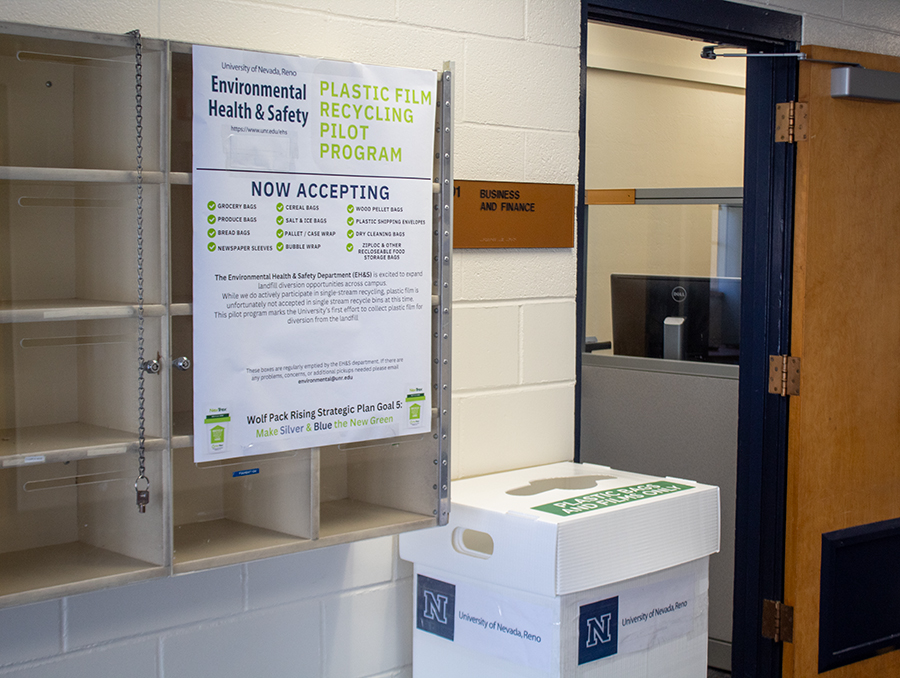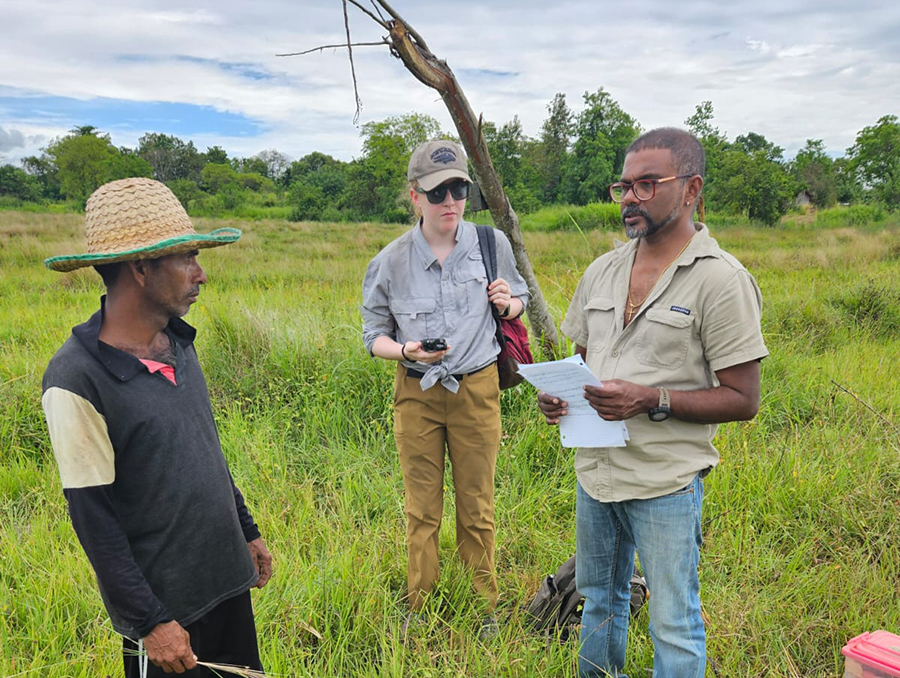Sarah Mitchell, Ph.D., CFLE, assistant professor of Human Development and Family Science, is driven by a passion to help students experience the world of research firsthand. As the founder and director of the Intersecting Identities and Relationships Study (IIRS) Lab within the College of Education & Human Development, Mitchell has built a space where undergraduates not only contribute to meaningful research but also develop invaluable skills that extend far beyond the classroom.
"Research is more than just an academic exercise; it's about discovering the things that matter to you and the world around you," Mitchell explained. "Whether it's diving deep into data or working directly with marginalized communities, the goal is to help students find their own passions, gain critical skills and prepare for future challenges."
The IIRS Lab focuses on understanding the experiences of individuals and families with marginalized and minoritized identities, examining how race, ethnicity, gender, sexuality, disability and other aspects of identity shape relationships and societal experiences. As a qualitative researcher, Mitchell is committed to using critical frameworks like intersectionality, resilience and minority stress to explore how these identities impact individuals' lived experiences in both personal and institutional contexts.
For Mitchell, the core of her research is about more than just collecting data; it's about giving voice to those whose stories are often overlooked. She explained, "I am deeply interested in how individuals navigate their identities, how society perceives them and how institutions either support or challenge them. By sharing these stories, we not only learn about individual experiences but also open up new avenues for social change."
In the IIRS Lab, Mitchell mentors a diverse group of undergraduate and graduate students, helping them engage in hands-on research that ranges from collecting data to analyzing complex qualitative responses. Her approach to mentorship is not only about guiding students through the research process but also about recognizing their potential as collaborators.
"I don't view my students as assistants; they are integral partners in the research," Mitchell said. "We work together to tailor projects that align with their individual goals, whether they are interested in data collection, literature reviews, or gaining other specific research skills." Her work and dedication have won her the Judith S. Bible Teaching Excellence in Education award in 2024 and the Outstanding Graduate Advisor award in 2025.
One of those students who has learned from Mitchell is Bahar Jazani, a senior double-majoring in political science and sociology with a minor in music, who joined the lab in the Fall of 2023. "I connected some of my political activism at the time to the work Dr. Mitchell was doing to serve marginalized communities," she said. "As an Iranian American woman myself, I have witnessed systems of oppression at play firsthand. I wanted to build on the real-life organizing and activism work I was doing but through a research-oriented way."
Over the years, Mitchell has supervised 28 undergraduate students in her lab. Many of these students have received recognition for their work, including publication credits and opportunities to present at regional and national conferences. One of the most rewarding aspects of her role she shared is seeing her students grow not just as researchers but as individuals.
Bahar echoed the profound impact of the lab: "I could talk about Dr. Mitchell's work, important contributions, and supportive energy all day. The lab is an incredible, fun and light-hearted environment. I love working with her — I have learned so much about family sciences from her, and she makes it fun. She goes out of her way to ensure everyone's needs are met."
"My hope is that when students leave the lab, they walk away with more than just research experience. I want them to gain confidence, critical thinking skills and the ability to navigate complex ideas and situations in the real world," Mitchell said.
The students involved in Mitchell's lab come from a variety of backgrounds, and their paths to research are equally diverse. Some join the lab through competitively funded positions such as the McNair Scholars Program, while others participate through independent study courses or internships. Regardless of how they enter the lab, all students are trained in human subjects research, literature searches, interview protocol design, qualitative data analysis and manuscript writing. Each student typically works between six to nine hours a week, contributing to various research tasks that help shape the lab's ongoing projects.
For many students, the opportunity to be part of the IIRS Lab is a transformative experience. Several have expressed how the lab has deepened their understanding of social issues, empowered them to think critically and helped them develop practical skills that will serve them in graduate school or the workforce.
"My scope of the research aims to understand the racial socialization and resilience of housing-insecure LGBTQ+ people of color," Bahar shared. "I interview people who have undergone housing insecurity to understand their experiences, how they conceptualize resilience and how this may relate to their racial socialization."
She added that the experience has shaped her both personally and professionally. "Being in the lab and interviewing people who have experienced housing insecurity, on top of many more gut-wrenching experiences. I am even firmer in my belief that the system fails marginalized communities. But I also see how people fight against these systems through resistance and resilience."
Mitchell has seen her students thrive as they develop their own research projects and agendas, many of which have led to conference presentations or even publications. "I view each of my students as a collaborator, and it's been a joy to see them grow into confident researchers who are eager to contribute to the broader academic community," Mitchell said.
Her dedication to her students' success and well-being goes beyond research. "Academic achievement is important, but it's not sustainable if we aren't caring for ourselves as whole people," she said. In her lab, personal milestones, whether related to academics or personal growth, are celebrated, creating an environment where students feel supported in all aspects of their lives.
As Mitchell continues to build the IIRS Lab within the College of Education and Human Development, her commitment to mentorship and research remains a core part of her academic mission, which embodies the core values of The Wolf Pack Way. For her, the most meaningful part of her work is the impact she has on her students, preparing them to make their own marks in the world.















